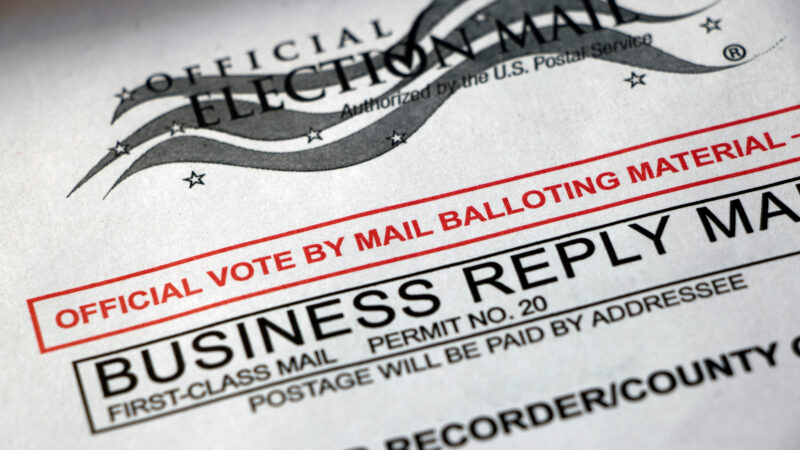Restrictions on absentee ballot help in Alabama are being challenged in a lawsuit
MONTGOMERY, Ala. (AP) — An Alabama law that criminalizes certain types of assistance with absentee ballot applications is being challenged in court by groups who say it “turns civic and neighborly voter engagement into a serious crime.”
The Alabama State Conference of the NAACP, the League of Women Voters, and other groups are plaintiffs in the lawsuit filed in federal court. They say the statute disenfranchises voters, including senior citizens and disabled voters, who may need assistance in the absentee voting process.
The new Alabama law, which restricts who can return or fill out an absentee ballot application, comes as Republicans in several states have looked to enact new restrictions on voting by mail after former President Donald Trump lost his bid for reelection in 2020.
The new Alabama law makes it a misdemeanor to return another person’s ballot application or distribute an absentee ballot application that is prefilled with information such as the voter’s name. It would become a felony — punishable by up to 20 years in prison — to pay someone to distribute, order, collect, deliver, complete or prefill someone else’s absentee ballot application.
“SB1 takes Alabama backwards as it violates the law, restricts our basic Constitutional Amendment rights, obliterates freedom of speech,” Benard Simelton, president of the Alabama State Conference of the NAACP, said in a statement. “It marginalizes voters’ access to the ballot box.”
Republicans in the Alabama Legislature had named the bill a key priority for the year and aimed to get it in place before the November election. GOP lawmakers argued that a voter could still request help with actual voting, but the restrictions on absentee ballot applications was needed to combat voter fraud through “ballot harvesting,” a term for the collection of multiple absentee ballots.
Alabama Secretary of State Wes Allen’s office said it could not comment on pending litigation but Allen reiterated support for the new law.
“SB1 provides Alabama voters with strong protection against activists who profit from the absentee elections process,” he said in a written statement. “I stand firm in my support of SB1 because now, under Alabama law, Alabama votes are not for sale.”
Opponents say there is no proof that ballot harvesting exists and call it an attempt to suppress voting by absentee ballot.
A federal judge in June blocked a Mississippi law from taking effect that named a short list of people who can “collect and transmit” an absentee ballot. The judge wrote that the Mississippi law violates the Voting Rights Act, a federal law that says any voter who is blind, disabled or unable to read may receive assistance “by a person of the voter’s choice.”
Thousands celebrate baby hippo Moo Deng’s first birthday at a Thailand zoo
The Khao Kheow Open Zoo was overrun with Moo Deng fans on the first of four days of activities marking the birthday of the adorable social media sensation.
What should you do in a flash flood? Expert safety tips for before, during and after
Flash floods can start suddenly and become dangerous quickly. But there are steps you can take to protect yourself, both in the moment and well in advance.
A recent high-profile case of AI hallucination serves as a stark warning
MyPillow creator Mike Lindell's lawyers were fined thousands for submitting a legal filing riddled with AI-generated mistakes. It highlights a dilemma of balancing technology and using it responsibly.
A dive into mermaid camp
Mermaids may not be real, but that hasn’t stopped people from turning it into a career. Mermaiding isn’t just about fantasy. It’s about building real confidence and skills that carry over into other water sports.
This TikTok video is fake, but every word was taken from a real creator
TikTok researchers and users say there is yet another type of deception to look out for on the hit video app: Deepfake videos that copy the exact words of a real creator but in a different voice.
Why a new opioid alternative is out of reach for some pain patients
Journavx is the first truly new painkiller approved by the Food and Drug Administration in more than 20 years. But the drug is expensive, and many people can't get it yet.









